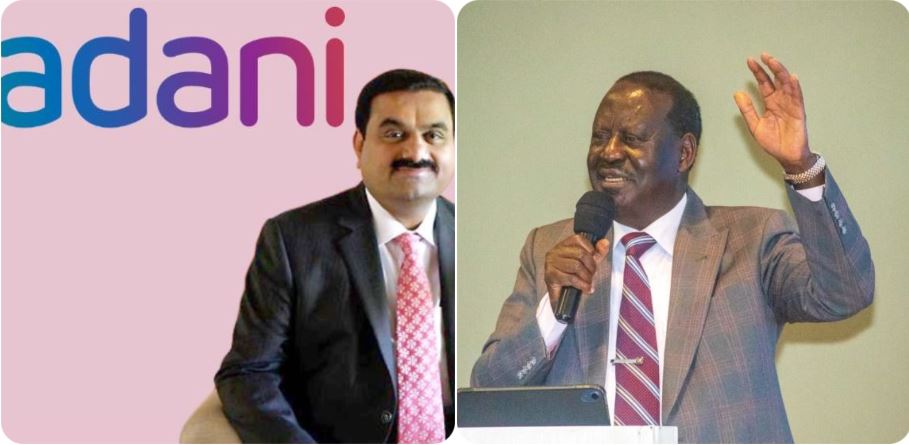
During a press conference on Sunday, October 13, 2024, Raila shared that he was introduced to the company while serving as Prime Minister from 2008 to 2013.
Following this introduction, Prime Minister Narendra Modi, then Chief Minister of Gujarat, invited Raila to India for a benchmarking mission. During his visit, Raila said he witnessed firsthand how the Adani Group had successfully developed major infrastructure projects, including a port, power plant, and airstrip.
“As Prime Minister of Kenya, I was introduced to the company and its projects by Prime Minister Modi,” Raila admitted.
“Indeed Prime Minister Modi organised for a Kenya government mission to visit Gujarat and I had the opportunity of visiting this company’s infrastructure that included a port, power plant, railway line and airstrip developed by what was a swamp donated by the government of India. I am talking about the Adani Group of Companies.”
Raila also visited Mumbai to observe an electricity project established by the Adani Group, furthering his understanding of the company’s capabilities.
After the visit, Raila recalled that Modi introduced the Public Private Partnership (PPP) framework, outlining how it was applied in India. He noted that in 2010, the Adani Group attempted to engage with Kenya, but the PPP framework was still in its developmental stages at that time.
He commended the Adani Group, stating that its energy portfolio surpasses the combined energy resources of Kenya, Uganda, and Tanzania.
Following the positive insights gained during his visit to India, where he witnessed the effective implementation of PPP projects by the Adani Group, Raila urged the Kenyan government to several adopt measures that ensure all stakeholders benefit from these projects.
Raila presented the following proposals regarding the consideration frameworks for PPP projects:
- Select the Most Suitable PPP Model: Choose the PPP model that best serves the interests of the Kenyan people.
- Fair Distribution of Burdens: Ensure that the models fairly distribute the PPP burden between the Kenyan populace and investors.
- Establish Minimum Terms: Define irreducible minimum terms in PPP agreements, which should include:
- Recognition of the jurisdiction of Kenyan courts
- Acknowledgment of labor terms and conditions in Kenya
- Commitment to environmental protection
- Public Financing Alternatives: Ensure viable publicly financed alternatives exist for every PPP project that requires any premium payment for usage.
- Secure Investor Responsibilities: Guarantee that investors’ discharge of responsibilities is backed by performance bonds secured by reputable banking institutions.
While not directly endorsing the Adani Group, Raila emphasized that the development proposals present an opportunity for Kenya to compete effectively with its regional peers. He cautioned that failing to adopt such models could hinder the country’s development progress.
“The ongoing energy and airport projects present a critical test that could either enhance or diminish our ability to compete in infrastructure development for a significant period,” he stated.
Raila also urged relevant agencies to address the concerns raised by Kenyans regarding the PPP models.
“I urge all agencies concerned to address all the concerns raised by Kenyans on this projects and ensure that we did not spook foreign capital away from the Kenyan economy,” he added.








